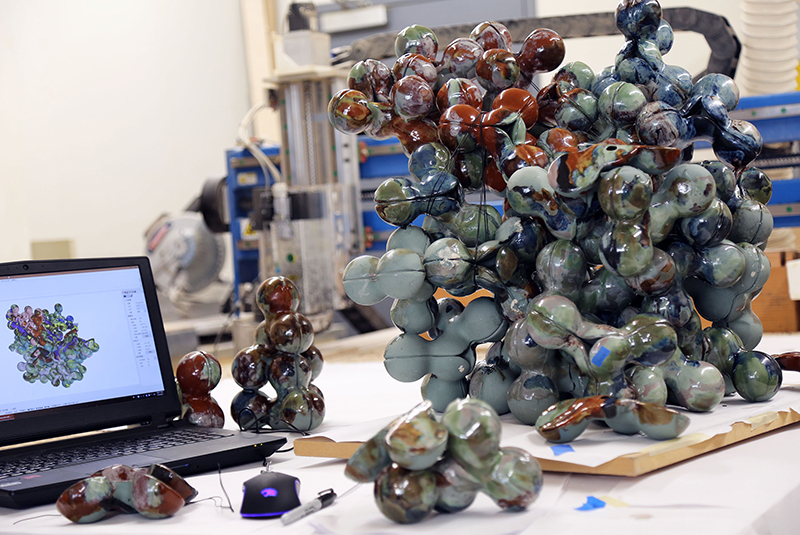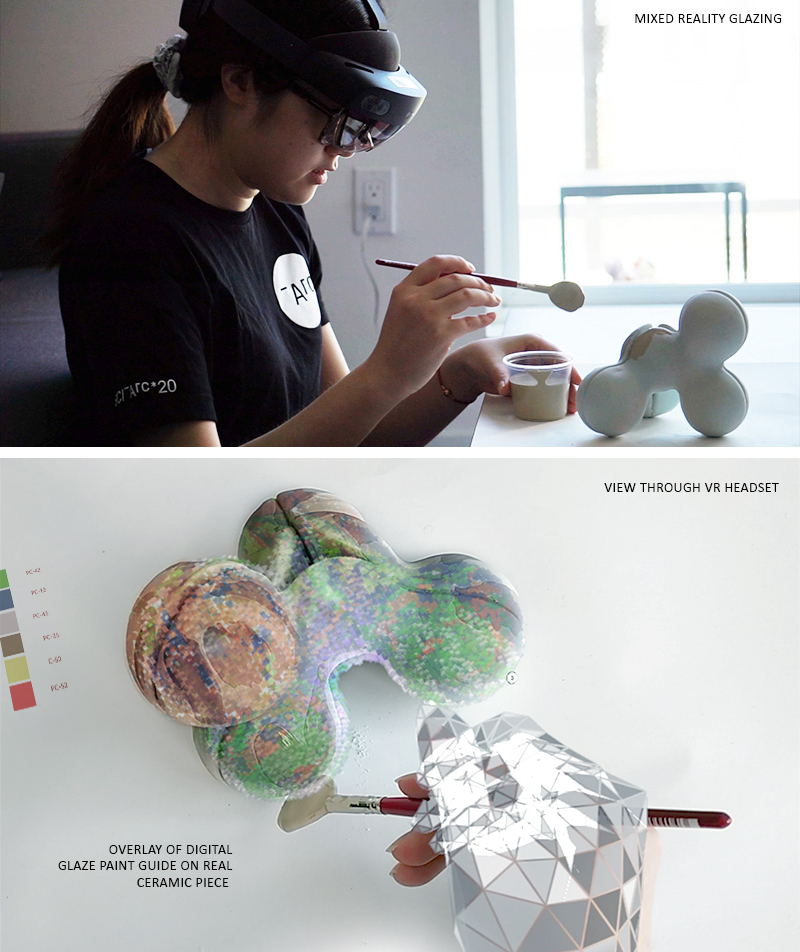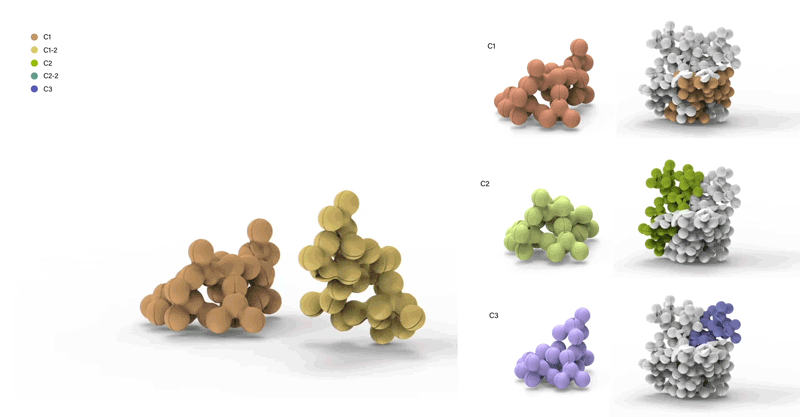Chaircraft:
Cluster Chair
Southern California Institute of Architecture (SCI-Arc)
︎
MIXED REALITY CERAMIC FABRICATION 2021:
CERAMIC COMPONENTRY
This course investigated new methods of digital design by exploring fabrication methods that hybridize contemporary technologies with the traditions of ceramic craft. The ambition of this seminar was for students to conceptualize, digitally simulate, and then prototype ceramic furniture with the aid of mixed reality tools. Fabrication of these prototypes necessitated the production of plaster molds, slip casting of clay parts, and mixed reality aided clay construction.
This project also utilized mixed-reality techniques to transfer patterning from the computer model onto the physical work by overlaying a 'glaze-by-numbers' display onto the ceramic components. First, a digital model of the ceramic chair was wrapped in a high resolution pattern. Then, a sequence of algorithms simplified the complex pattern into clearly defined colored regions. In a final step, the team used Microsoft's HoloLens2 headsets with Fologram software to view these glaze regions as holographic overlays across the physical ceramic forms, guiding them to recreate their complex 2D glaze patterns by hand. This novel process allowed the team to glaze each cluster individually, and separate from one-another, while ensuring that the glazed parts would come together as a cohesive pattern when finally assembled after firing.
Course:
Mixed Reality Ceramic Fabrication 2021: Digital Ceramic Furniture
The Southern California Institute of Architecture
Instructors:
Garrett Sutherlin Santo &
Herwig Baumgartner
Students:
Benjamin Jepsky, Jorge de Ovando, Camille Thai, Kangxin Wu, Christy Yu
This project also utilized mixed-reality techniques to transfer patterning from the computer model onto the physical work by overlaying a 'glaze-by-numbers' display onto the ceramic components. First, a digital model of the ceramic chair was wrapped in a high resolution pattern. Then, a sequence of algorithms simplified the complex pattern into clearly defined colored regions. In a final step, the team used Microsoft's HoloLens2 headsets with Fologram software to view these glaze regions as holographic overlays across the physical ceramic forms, guiding them to recreate their complex 2D glaze patterns by hand. This novel process allowed the team to glaze each cluster individually, and separate from one-another, while ensuring that the glazed parts would come together as a cohesive pattern when finally assembled after firing.
Course:
Mixed Reality Ceramic Fabrication 2021: Digital Ceramic Furniture
The Southern California Institute of Architecture
Instructors:
Garrett Sutherlin Santo &
Herwig Baumgartner
Students:
Benjamin Jepsky, Jorge de Ovando, Camille Thai, Kangxin Wu, Christy Yu











